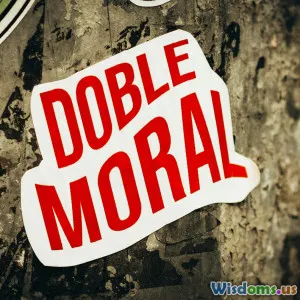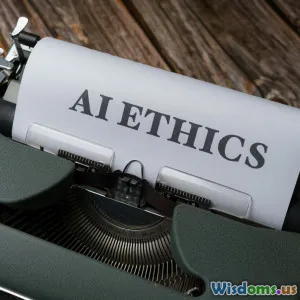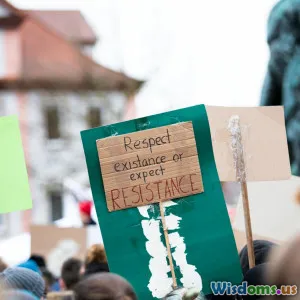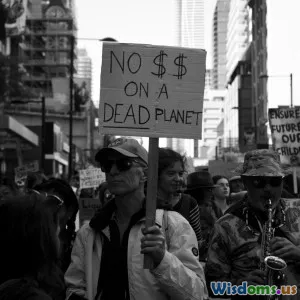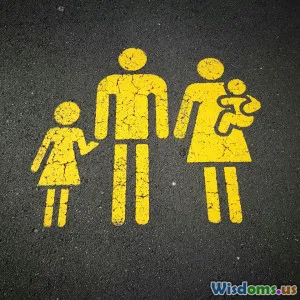
Can Lying Ever Be Morally Justified in Modern Times
11 min read Explore whether lying can be morally justified in today’s complex world through ethical theories, real-life cases, and societal nuances. (0 Reviews)
Can Lying Ever Be Morally Justified in Modern Times?
Is honesty truly the best policy, or do modern complexities call for exceptions?
In a world where information moves at lightning speed and trust sometimes erodes in the face of competing interests, the question arises: can lying ever be morally justified today? This inquiry cuts to the core of ethics, psychology, and societal norms. While many grow up with the simple axiom “don’t lie,” real-life scenarios often blur the lines between what’s ethical and what’s pragmatic.
Introduction
Lying is generally condemned as a breach of moral and social trust. However, the fabric of modern society is woven with complexities that demand more nuanced considerations. From “white lies” designed to protect feelings to high-stakes immoral disclosures veiled in deception, lying isn’t always black and white. Philosophers, ethicists, psychologists, and even everyday individuals struggle to delineate when deceit crosses from immoral to morally justifiable, if at all.
This article goes beyond the simple judgement of lying and asks a deeper question: Can lying ever be morally justified in modern times? Understanding that morality is a dynamic and culturally influenced concept, we will explore historical philosophical perspectives, contemporary ethical dilemmas, real-world examples, and the practical consequences of lying in our interconnected world.
The Frameworks of Moral Justification
Deontological Perspective: Truth as an Unconditional Duty
Immanuel Kant, a towering figure in moral philosophy, argued for absolute adherence to truth-telling. Kant’s deontology holds that lying is categorically wrong because it violates the principle of respect for persons and autonomy. He posits that a lie undermines the moral law and the very possibility of trust. For Kant, moral rules are universal; thus, even sincere attempts to protect someone by lying don’t justify the act.
Example: Kant famously argued that even lying to a potential murderer about the location of a victim is not permissible because it simplifies the moral landscape too much and violates the universal moral law.
Consequentialism: Examining Outcomes and Greater Good
Contrasting with Kantian absolutism is consequentialist ethics, especially utilitarianism championed by philosophers like Jeremy Bentham and John Stuart Mill. Here, the ethical value of lying depends on its outcomes. If lying results in a greater overall good—such as saving lives or protecting privacy—it can be morally justified.
Example: During World War II, members of the Dutch Resistance lied to Nazi soldiers to protect Jewish families in hiding. From a consequentialist perspective, those lies were morally commendable.
Virtue Ethics: Contextualizing Character and Intent
Virtue ethics shifts focus from judging individual acts to evaluating the character underlying them. Aristotle emphasized virtues like honesty but understood that compassion and prudence might require deviations. Here, the morality of lying hinges on intent, circumstances, and the alignment with virtues that promote human flourishing.
Example: A doctor might withhold distressing prognosis details or soften the truth to preserve a patient’s hope and morale, emphasizing compassion over strict honesty.
The Spectrum of Lies: From White Lies to Harmful Deceptions
Understanding whether lying is morally justified requires dissecting types and intentions of lies.
White Lies: Social Lubricants or Ethical Pitfalls?
White lies are minor or benign lies told to avoid hurting someone’s feelings or to ease social interactions. For instance, complimenting a friend’s cooking despite personal distaste is generally considered harmless or even kind.
Insights: Research in social psychology suggests white lies can improve social bonds and prevent conflict. A 2018 study in the Journal of Experimental Social Psychology found that people tell white lies daily to maintain harmony and avoid awkwardness.
However, habitual white lying can erode trust over time if detected, raising questions about authenticity in relationships.
Lies to Protect Life and Safety
Arguably the most widely cited justification for lying involves life-or-death scenarios. The ethical dilemma shifts dramatically when the truth could lead to harm or death.
Historical Example: Oskar Schindler and his workers who lied about the work conditions to protect Jewish laborers during the Holocaust.
Modern Parallel: Whistleblowers sometimes have to deceive to expose systemic corruption or prevent greater harm.
Lies that Damage and Divide
On the other hand, deceptive practices aimed at manipulation, fraud, or inciting harm stand on ethically shaky ground. Fake news, misinformation, and disinformation campaigns erode democratic institutions and social cohesion.
Case Study: The rise of deepfake technology and misinformation during elections demonstrates the harm that deceptive tactics cause, dismantling informed consent and fair decision-making.
Psychological and Societal Impacts of Lying
The Psychology Behind Deception
Lying activates parts of the brain associated with cognitive load. According to neuroscientific research, maintaining lies requires more mental effort than telling the truth.
Repeated lying can impact an individual's mental health, leading to anxiety and stress from cognitive dissonance. Yet in some contexts, lies reduce immediate interpersonal distress or social friction.
Trust and Social Cohesion
Trust is the bedrock of social interactions, governance, and commerce. Societies that experience high levels of deception face diminished social capital.
Fact: Transparency International’s Corruption Perceptions Index correlates high trust levels with lower corruption and deception prevalence, underscoring the societal cost of lying.
Yet, paradoxically, some deception in diplomacy or conflict resolution can prevent escalations or enable negotiation - tactical deception aimed at the greater peace or stability.
When Lying Becomes Morally Justified: Real-World Applications
Medical Practice and Informed Consent
Though modern medicine emphasizes patient autonomy, many practitioners grapple with how much truth to disclose without causing harm or despair.
A landmark study in the New England Journal of Medicine (2016) debates 'therapeutic privilege,' wherein temporary non-disclosure or even deception may aid treatment effectiveness.
Whistleblowing and Confidentiality Breaches
Whistleblowers sometimes lie or break confidentiality to expose unethical activities within organizations. Here, deception is a tool in the service of transparency and accountability.
Notable Example: Edward Snowden’s disclosures of NSA surveillance involved deceptive tactics but sparked vital global debates on privacy and state power.
Diplomatic and Military Deception
Deception has long been a strategic tool in warfare and diplomacy—lies, misinformation, and propaganda aimed at safeguarding national interests.
Sun Tzu's The Art of War famously champions deception: "All warfare is based on deception," highlighting that strategic falsehoods can be necessary for survival.
Conclusion: Navigating the Morality of Lying in a Complex World
Is lying ever morally justified in modern times? The answer is inevitably complex and context-dependent. Reconciling strict ethical principles with pragmatic realities reveals that lying can sometimes serve higher ethical purposes, such as protecting life, preserving social harmony, or advancing justice.
However, this does not grant carte blanche to deceive arbitrarily. The moral legitimacy of lies hinges on intention, consequence, and the broader impact on trust and integrity. Society thrives when truth is the norm, but an ethical framework recognizing nuanced exceptions empowers us to navigate the moral gray areas sustainably.
As our global interconnectedness deepens and technology advances—bringing new challenges of misinformation—it is ever more critical to cultivate ethical discernment about when speaking truth, withholding it, or even lying, best serves humanity.
Ultimately, honesty remains a pillar of morality, but understanding when and why lying might be justified reveals the depth of human ethics in contemporary life.
“Harmless lies for the kindest ends can sometimes be not lies but expressions of love.” — Adaptation of philosophical views on lying
References
- Immanuel Kant, Groundwork of the Metaphysics of Morals, 1785
- John Stuart Mill, Utilitarianism, 1863
- Article on “White Lies” in Journal of Experimental Social Psychology, 2018
- Transparency International’s Corruption Perceptions Index, 2023
- New England Journal of Medicine, “Therapeutic Privilege in Medicine,” 2016
- Sun Tzu, The Art of War
- Case studies on Oskar Schindler and Edward Snowden
Rate the Post
User Reviews
Popular Posts










